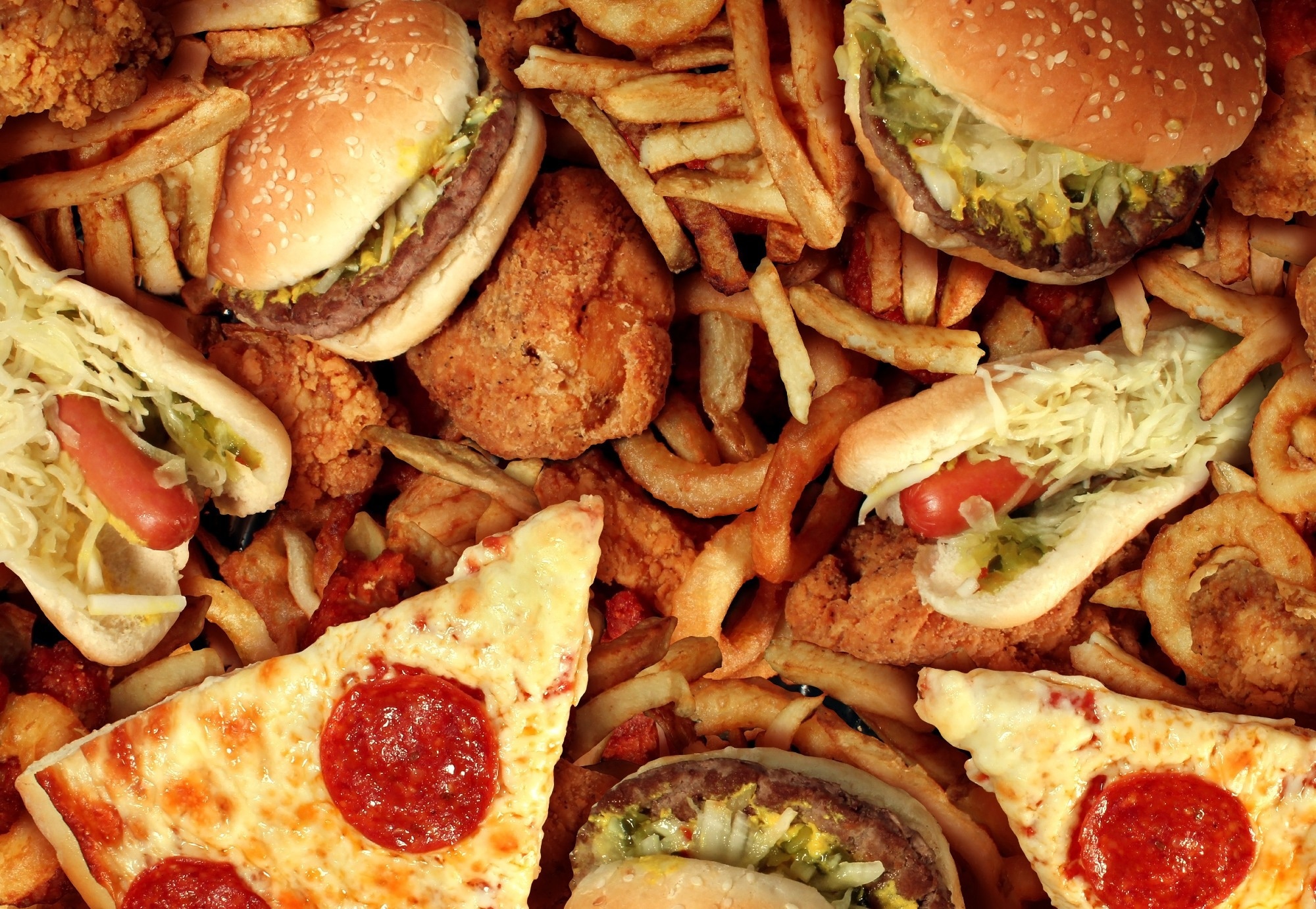As UPFs and food additives become more common in diets worldwide, they have been implicated in adverse gut outcomes like alterations to microbial communities and intestinal permeability, leading to chronic inflammation or diseases such as inflammatory bowel disease (IBD), irritable bowel syndrome (IBS), and colorectal cancer. However, human intervention studies on this topic are limited.
 Study: Ultra-processed foods and food additives in gut health and disease. Image Credit: Lightspring / Shutterstock
Study: Ultra-processed foods and food additives in gut health and disease. Image Credit: Lightspring / Shutterstock
Identification of UPFs
To classify foods as UPFs, nutritionists use criteria related to how different an item is from the original unprocessed ingredient, how it is processed, whether additives have been used, whether it is commercially produced instead of homemade and whether it is used for appearance or convenience.
However, different classification systems make comparisons challenging; the most prevalent has been adopted by the United Nations Food and Agriculture Organization and includes powdered and packaged foods, carbonated soft drinks, and sweetened breakfast cereals as UPFs. However, some foods, like wholemeal bread and plant-based alternatives to meat, are widely considered healthy but meet the criteria for UPFs.
UPF consumption and gut health
While UPFs are prevalent, there are wide variations across individuals and countries. In the United States, UPF consumption accounts for 59.7% and 67% of energy intake in American adults and young people, respectively.
Individual characteristics associated with consuming more UPFs include female sex, younger age, lower income, lower education, living alone, being overweight or obese, lower physical activity, and screen use at mealtimes.
People who consume more UPFs have more free sugars, saturated fats, and energy in their diets but less dietary fiber, protein, and many micronutrients. Vegetarians and vegans are more likely to consume UPFs, while those who follow Mediterranean diets consume less.
Controlling for dietary quality and nutrient intake, evidence of associations between UPF consumption and disease exists. However, UPF intake from fruit yogurts, fortified breakfast cereals, and wholemeal bread is healthier than the same level of UPF consumption from ready meals, burgers, and pastries.
Cohort studies have found that UPF consumption is associated with higher mortality and morbidity from cancer, cardiovascular disease, and type 2 diabetes mellitus. Observational studies show relationships with depression, metabolic syndrome, overweight, and obesity. These effects likely stem from processing and not the nutrient and energy content of UPFs.
Additionally, cohort studies that examined UPF consumption and IBD (ulcerative colitis and Crohn’s disease) found that those who consumed more UPFs faced the highest risk. Similar results were found looking at Crohn’s disease alone but not ulcerative colitis. One cohort study found significant associations between UPF consumption and IBS and functional dyspepsia but not functional diarrhea or constipation. UPF intake has also been implicated in distal colon cancer in men and colorectal adenoma.
Due to methodological inconsistencies, including the use of self-reported dietary data, there may be biases in the results, and comparisons between studies and the use of meta-analytic methods are limited. The adverse health outcomes associated with UPFs may be driven by their effect on the gut microbiome, but this has been explored in only two studies.
Effects of food additives
Food additives include sweeteners, colors, stabilizers, emulsifiers, thickeners, and gelling agents. There is considerable overlap between UPFs and food additives since an item that contains a commercial food additive is considered a UPF. Mechanistic studies on the effect of food additives on the microbiome have included animal and in vitro studies, with few investigations on human populations.
In vitro studies show that emulsifiers such as polysorbate 80 can cause small intestinal bacterial overgrowth, while carboxymethylcellulose (CMC) can translocate bacteria across the in vitro epithelia. This could lead to chronic inflammatory disease, which has been demonstrated in studies on mice. Consumption of CMC and polysorbate 80 was also associated with tumor development and anxiety-like behaviors in mice.
Artificial sweeteners, which pass through the gastrointestinal tract but are not digested, come into direct contact with gut microbiota, but this has not been well-studied in humans. However, in vitro and animal studies suggest that sweeteners like aspartame, sucralose, and saccharin can modify the microbiome, disrupt gut permeability, reduce colonic length, and increase mortality.
However, these were short-term studies with far higher doses than those used by humans. An observational study on humans found no differences in microbiota consumption after four days of sweetener consumption but did not control for background diet and dose-response relationships.
A randomized controlled trial found that constipation, diarrhea, burning, and postprandial discomfort increased after five weeks of sweetener consumption, while epigastric pain, early satiety, and abdominal pain were lower in a control group on a sweetener-restricted diet.
Conclusions
There are clear indications that UPFs and food additives lead to adverse health outcomes, but methodological inconsistencies and gaps in human trials must be addressed. The authors highlight the need for high-quality evidence to interpret the effects of dietary interventions. As UPF availability and consumption increase, public health policy should target UPF reformulation and consumer behavior.
Journal reference:
- Ultra-processed foods and food additives in gut health and disease. Whelan, K., Bancil, A.S., Lindsay, J.O., Chassain, B. Nature Reviews Gastroenterology & Hepatology (2024). DOI: 10.1038/s41575-024-00893-5, https://www.nature.com/articles/s41575-024-00893-5